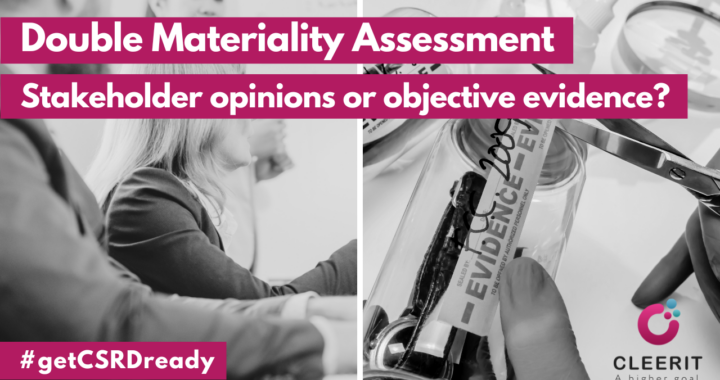In EFRAG’s last release of technical Explanations from the ESRS Q&A Platform there is a lot of useful information for various datapoint disclosures.
An example of explanations include additional guidance on stakeholder engagement in double materiality assessment:
⭕When assessing the materiality of a sustainability matter, is the focus on stakeholder opinions or on objective evidence?
There is no conflict between consideration of views of affected stakeholders and objective evidence.
The purpose of both is to get an understanding of the severity (and likelihood) of impacts to present them faithfully in the sustainability statement.
Depending on the circumstances, this may or may not require engagement with affected stakeholders.
The materiality analysis should be driven as much as possible by objective data and evidence.
Scientific evidence is the focus in some cases depending on the type of topic and availability of such evidence.
Quantitative/scientific data on the impact may or may not also be available.
Widespread/systemic impacts often tend to be well documented, and there is often a consensus on their severity.
In other cases, depending on the topic the views of affected (❗) stakeholders are a source of supporting evidence for impact materiality.
However, not all stakeholder opinions are equally relevant for the materiality analysis.
Relevance depends on how much the stakeholders are affected (severity – and likelihood – of impacts).
Understanding entity-specific impacts and/or the manifestation of widespread/systemic impacts in particular contexts and situations requires more careful consideration of specific circumstances, including whether and how people or the environment are affected.
Elements useful to address this question can be found in IG 1 Materiality assessment chapters 3.5 Role and approach to stakeholders in the materiality assessment process and 5.4 FAQ on stakeholder engagement – impact materiality.
⭕It is also reminded that:
The ESRS require disclosure on the materiality assessment and its outcomes but do not mandate specific behaviour on stakeholder engagement or the due diligence process.
The assessment of IROs should rely on quantitative information where possible, as quantitative measures of IROs are objective evidence of their materiality.
The emphasis on objective and quantitative information does not mean to imply that the information from affected stakeholders should be disregarded.
(IG 1 Materiality assessment – FAQ 10, 180-183)
You will find more useful explanations on the ESRS Q&Q Platform >>
